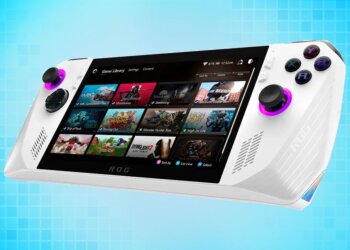When the Nintendo Switch 2 was first unveiled, there was no shortage of debate. However, what really shines through the initial controversy is its compelling launch lineup. Leading with the exclusive Mario Kart World, Nintendo is not holding back. The console’s debut is bolstered by big names from third-party developers such as Split Fiction, Cyberpunk 2077, Yakuza 0: Director’s Cut, and Hogwarts Legacy. A notable surprise among these titles is Bravely Default: Flying Fairy HD Remaster. This game is a polished re-release of the much-loved 2013 JRPG from the Nintendo 3DS, originally brought to life by Square Enix and Silicon Studio. The remastering duty this time has been handed to Cattle Call, and it’s set to be a Nintendo Switch 2 exclusive.
The Bravely Default saga has always had its roots firmly planted in Nintendo consoles. Every single one of its entries made its debut under Nintendo’s wing and reached gamers worldwide under its publishing banner. In fact, only Bravely Default 2 defied this tradition by appearing on Windows PCs almost a year after captivating audiences on the Nintendo Switch. Given this history, Bravely Default: Flying Fairy HD Remaster’s exclusive status with Nintendo isn’t entirely unexpected, though it seemingly contradicts Square Enix’s recently vocalized intent of pursuing a broader, multiplatform strategy.
Square Enix has a history with exclusivity, setting its games for launch solely on select platforms. This approach stands in contrast to other third-party giants like Capcom, EA, and SEGA, who favor broader releases. Some of Square Enix’s recent high-profile titles, such as Final Fantasy 7 Remake, Final Fantasy 7 Rebirth, and Final Fantasy 16, initially embraced exclusivity with PlayStation before stepping onto the PC scene.
Previously, this exclusivity model served Square Enix well during the PS1 through PS3 eras. But today, it’s not delivering the same results. Recently, the company has had to disclose unmet sales expectations for many latest exclusives, especially within the Final Fantasy series. To tackle this, Square Enix rolled out a three-year strategic plan named “Square Enix Reboots and Awakens,” aiming for a transformation toward multiplatform game development. This plan, unveiled in May 2024, underscored a commitment to making their titles accessible across various platforms: Nintendo, PlayStation, Xbox, and PCs.
With this promise, gamers expected a new era for Square Enix, where Nintendo gems and large franchises like Final Fantasy wouldn’t be tethered to a single console anymore. Yet, the exclusivity of the upcoming Bravely Default: Flying Fairy HD Remaster indicates a partial return to past tendencies.
Looking at the landscape, keeping the Bravely Default remaster tied exclusively to the Switch 2 feels shortsighted. This game’s essence—a reimagined 3DS title—would comfortably fit on the original Switch. Moreover, considering Bravely Default caters to a more niche audience, it’s hard to see how it alone would drive massive sales for the new console. Broadening its release across platforms like PlayStation, Xbox, and PC could open the door to a wave of new enthusiasts and elevate the series globally. If Square Enix genuinely aims to embrace a multiplatform future, it should resist the temptation to cling to obsolete exclusivity, even with titles smaller in scope like Bravely Default.











![[Free Game Giveaway] Win Treasure Hunter Simulator for Nintendo Switch (NA Version)](https://www.pixbulletin.com/wp-content/uploads/2025/04/Free-Game-Giveaway-Win-Treasure-Hunter-Simulator-for-Nintendo-Switch-360x180.jpg)





























